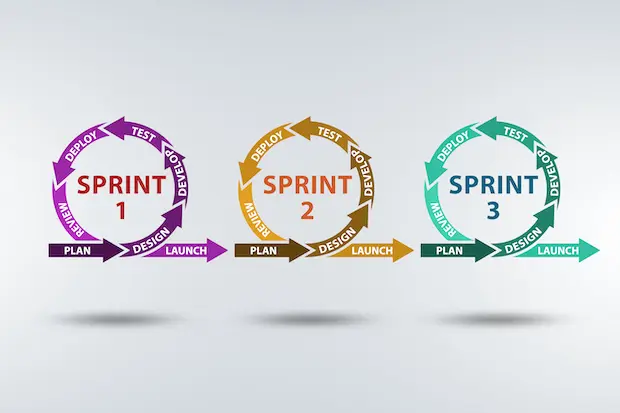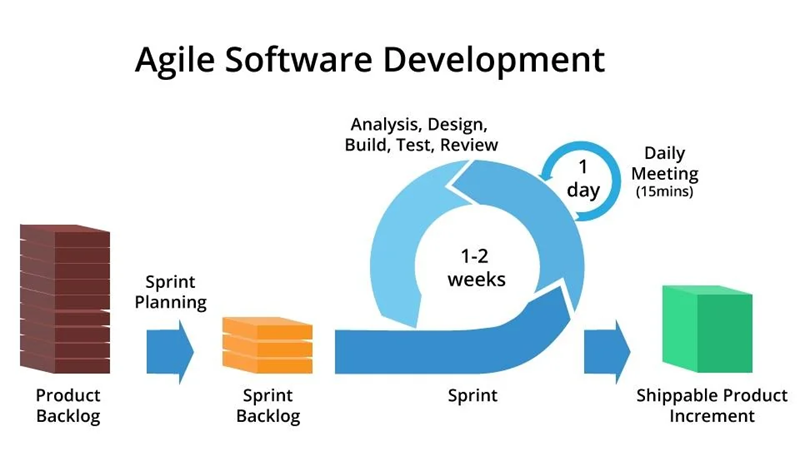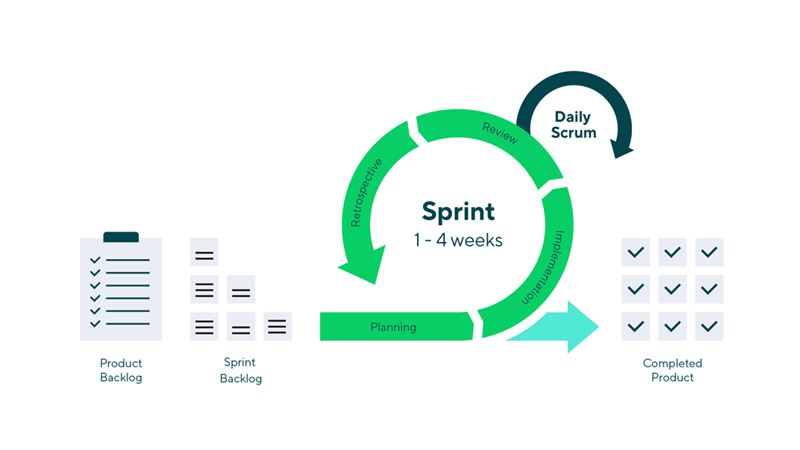Collaborative coding sprints are a popular method for teams of software developers to work together to solve complex problems and create innovative solutions in a short amount of time. During a coding sprint, team members come together to focus solely on a specific project or task, typically over the course of a few days or a week.
This intensive and concentrated effort allows for rapid progress to be made on a project, with team members able to bounce ideas off each other, share knowledge and expertise, and collectively work towards a common goal. By working collaboratively in a sprint format, teams are able to leverage the diverse skills and talents of each member, leading to more creative and effective solutions than if each individual were working on their own.
Additionally, the time pressure of a coding sprint can help to foster a sense of urgency and focus among team members, leading to increased productivity and efficiency.
One of the key benefits of collaborative coding sprints is the opportunity for team members to learn from each other and expand their skill sets. By working closely with colleagues who have different backgrounds and areas of expertise, team members can gain valuable insights and knowledge that they may not have otherwise been exposed to.
This can lead to a more well-rounded and versatile team, with members who are able to tackle a wider range of challenges and projects. Additionally, the collaborative nature of coding sprints can help to foster a sense of camaraderie and teamwork among team members, leading to a more positive and productive work environment.
In addition to the technical benefits of collaborative coding sprints, there are also a number of social and emotional benefits to be gained from working in this format. The intense and focused nature of coding sprints can help to build a sense of camaraderie and mutual support among team members, leading to stronger relationships and a more cohesive team. This can help to improve communication and collaboration within the team, leading to better outcomes and a more positive working environment.
Additionally, the time pressure of a coding sprint can help to build resilience and perseverance among team members, as they work together to overcome challenges and meet tight deadlines. This can help to build confidence and self-esteem among team members, leading to a more motivated and engaged workforce.
Overall, collaborative coding sprints can be a valuable tool for software development teams looking to work more efficiently and effectively on complex projects. By bringing team members together in a focused and intensive environment, coding sprints can help to foster creativity, innovation, and collaboration, leading to better outcomes and a more positive work environment. Whether working on a short-term project or a long-term initiative, collaborative coding sprints can help teams to achieve their goals and deliver high-quality results in a timely manner.

Benefits of Participating in Coding Sprints
Participating in coding sprints can offer a myriad of benefits for individuals looking to enhance their coding skills and collaborate with like-minded individuals. One key advantage is the opportunity to sharpen one’s problem-solving abilities by tackling complex coding challenges within a limited time frame. This can help improve critical thinking skills and enhance one’s ability to think creatively under pressure.
Additionally, coding sprints provide a platform for developers to collaborate and learn from each other, fostering a sense of community and camaraderie among participants. By working together to solve coding problems, individuals can gain new insights and perspectives that can help them grow as developers. Furthermore, participating in coding sprints can also offer the chance to showcase one’s coding skills and potentially attract the attention of potential employers or collaborators.
Many companies look favorably upon candidates who have participated in coding sprints, as it demonstrates a willingness to push oneself outside of one’s comfort zone and continuously improve one’s skills. Overall, participating in coding sprints can be a valuable experience for developers looking to challenge themselves, learn from others, and ultimately become better at their craft.
How to Prepare for a Coding Sprint
Preparing for a coding sprint requires careful planning and organization to ensure that the team can work efficiently and effectively during the sprint. First, it is important to have a clear understanding of the project requirements and goals. This will help the team prioritize tasks and focus on what needs to be accomplished during the sprint.
Next, it is essential to have a well-defined sprint plan that outlines the tasks to be completed, the timeline for completion, and the roles and responsibilities of team members. This will help keep the team on track and ensure that everyone is working towards the same objectives. Additionally, it is important to make sure that all team members have the necessary skills and resources to complete their tasks during the sprint.
This may involve providing training or support to team members who need it, as well as ensuring that all necessary tools and software are available. Finally, it is important to create a supportive and collaborative team environment during the sprint. This may involve holding regular check-ins or stand-up meetings to track progress, address any issues or roadblocks, and keep everyone motivated and engaged. By following these steps and preparing carefully for the coding sprint, teams can maximize their productivity and achieve their goals in a timely manner.

Tips for Effective Collaboration During Sprints
Effective collaboration during sprints is crucial for the success of any project. One tip for successful collaboration is clear communication. It is important for team members to communicate openly and regularly, sharing updates on progress, challenges, and ideas. This helps to ensure that everyone is on the same page and working towards the same goals. Another tip is to establish clear roles and responsibilities for each team member.
This helps to avoid confusion and ensures that everyone knows what is expected of them. Additionally, setting clear goals and deadlines can help to keep the team focused and motivated. By breaking down the project into smaller tasks and setting achievable milestones, team members can stay on track and avoid unnecessary delays. Collaboration tools, such as project management software or communication platforms, can also be helpful in facilitating collaboration during sprints.
These tools can help to streamline communication, track progress, and keep everyone organized. Finally, it is important for team members to be flexible and willing to adapt to changes. Sprints are often fast-paced and require quick decision-making, so it is important for team members to be open to new ideas and willing to adjust their approach as needed. By following these tips, teams can ensure effective collaboration during sprints and ultimately achieve their project goals.
Common Challenges and How to Overcome Them
In life, we often face challenges that can seem overwhelming at times. One common challenge that many people encounter is financial struggles. Whether it be due to unforeseen circumstances or poor money management, financial difficulties can take a toll on one’s mental and emotional well-being. To overcome this challenge, it is important to create a budget and stick to it, cut back on unnecessary expenses, and seek assistance from financial counselors or support groups.
Another common challenge is maintaining a healthy work-life balance. With the demands of work constantly increasing, it can be difficult to find time for personal relationships, hobbies, and self-care. To overcome this challenge, it is crucial to prioritize self-care, set boundaries with work, and communicate effectively with employers and loved ones.
Additionally, interpersonal conflicts can also pose a challenge in our daily lives. Whether it be with family members, friends, or colleagues, disagreements and misunderstandings can strain relationships and cause stress. To overcome this challenge, it is important to practice active listening, empathy, and conflict resolution skills. By addressing these common challenges with determination, resilience, and a positive mindset, we can navigate through life’s obstacles and emerge stronger and more resilient.

Success Stories from Past Coding Sprints
Coding sprints have been a popular way for developers to come together and work collaboratively on a project within a short period of time. Many success stories have emerged from past coding sprints, showcasing the power of teamwork, innovation, and creativity.
One such success story comes from a coding sprint where a team of developers created a new app that revolutionized the way people track their fitness goals. The app gained widespread popularity and was eventually acquired by a major tech company for a significant sum. Another inspiring success story involves a group of developers who used a coding sprint to develop a new software tool that streamlined the process of data analysis for researchers. This tool has since been adopted by universities and research institutions around the world, making a significant impact on the field of data analysis.
These success stories highlight the immense potential of coding sprints to drive innovation and create impactful solutions to real-world problems. By bringing together talented individuals with diverse skill sets and backgrounds, coding sprints have proven to be a powerful platform for fostering creativity and producing groundbreaking technologies. The lessons learned from these success stories can serve as inspiration for future coding sprints, encouraging participants to think outside the box and push the boundaries of what is possible in the world of technology.
